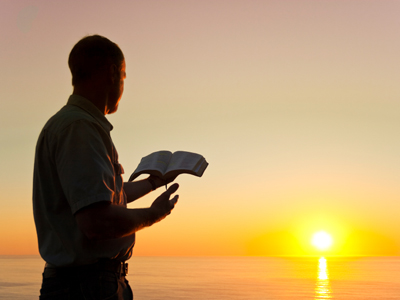
Christianity - Biblical 'Truth' and Authority
This GCSE RE Christianity quiz takes a look at Biblical 'Truth' and Authority. For Christians the Bible is the bedrock of their faith, through whose words down the centuries God has guided His believers ~ though they may well also experience guidance in complementary ways, through circumstances, opportunities, discussion and preaching from others in their lives. Clearly, such people ~ who mean well, and are unlikely to commit their way of living to the influence of a book they do not feel they can trust ~ must satisfy themselves that it is ‘true’ (or at least, that they can accept it en-masse, even if some passages may require a lifetime’s faith and study to reach a fuller understanding).
One of the great debates of the past century-and-a-half has been over whether the Genesis account of creation should be taken as literally true.
A fair Bible reader needs to be aware which parts of Scripture should be taken literally, and which figuratively (e.g. when the Psalmist finds himself in a bad place and declares ‘I am a worm, not a human being’ ~ which clearly cannot be taken at face value).
Then again, these days more than ever before there are alternative translations available which should tell broadly the same message, yet in subtly different ways, such as being more ‘inclusive’ (i.e. not insisting by traditional default that people in general should be referred to as ‘he’). Well might an outsider wonder at what point any version of the Bible stops being genuine.
There is also the matter of modern dilemmas which time-honoured Bible texts never address directly, such as the ethics and opportunities of the internet (though we can fairly reliably infer its view on the issue of ‘temptation’ towards such dishonouring pursuits as adultery and irresponsibility with one’s money).
How do Christians, generally and variously, validate their study of the Scriptures?
Which is the non-synoptic Gospel?
One such, wholly unique and very startling, object is the Turin Shroud ~ which purports to have been what, exactly, with reference to the events of the original Holy Week?
Ready for more?
not all...
quizzers. Try to win a coveted spot on our Hall of Fame Page.








Answer 3 was completely fabricated and never the opinion of John Riches. The rest of the quotation comes from 'The Bible: A Very Short Introduction' (Oxford: Oxford University Press, 2000; ISBN 978-0-19-285343-1) page 134.